The Best Companion Plants For Corn
The Best Companion Plants for Corn
Corn is a staple crop in many parts of the world, and for good reason. It's a delicious and nutritious food that can be grown in a variety of climates. But did you know that you can improve your corn harvest by planting companion plants?
Companion planting is the practice of planting different types of plants together in order to benefit each other. Some plants can help to attract beneficial insects, deter pests, or improve soil quality. When you plant corn with the right companion plants, you can boost your yields and reduce the amount of time and effort you need to spend on pest control and watering.
Here are some of the best companion plants for corn:
- Pole beans: Pole beans are a nitrogen-fixing plant, which means they can help to improve the nitrogen content of the soil. They also provide shade for the corn plants, which can help to prevent them from getting sunburned.
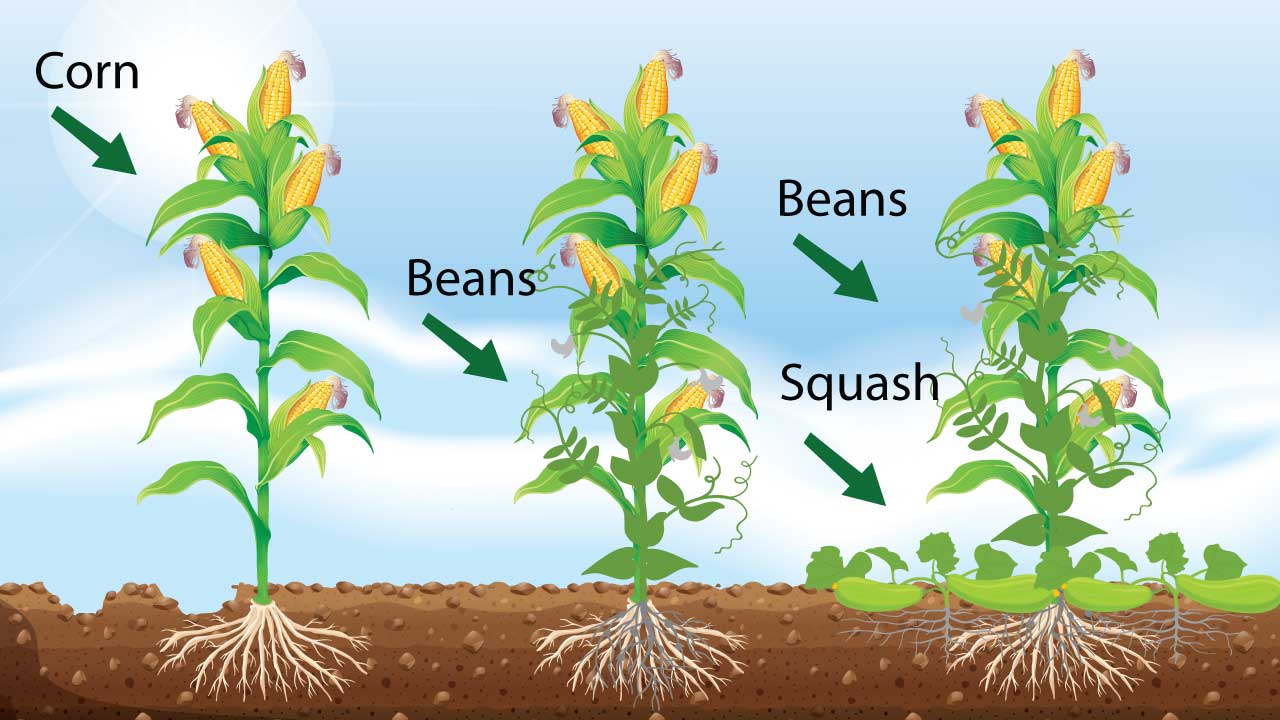
- Peas: Peas are another nitrogen-fixing plant that can benefit corn. They also help to suppress weeds and improve soil drainage.

- Sunflowers: Sunflowers attract beneficial insects, such as ladybugs and parasitic wasps, which can help to control pests that attack corn. They also help to break up the wind, which can help to prevent corn plants from toppling over.
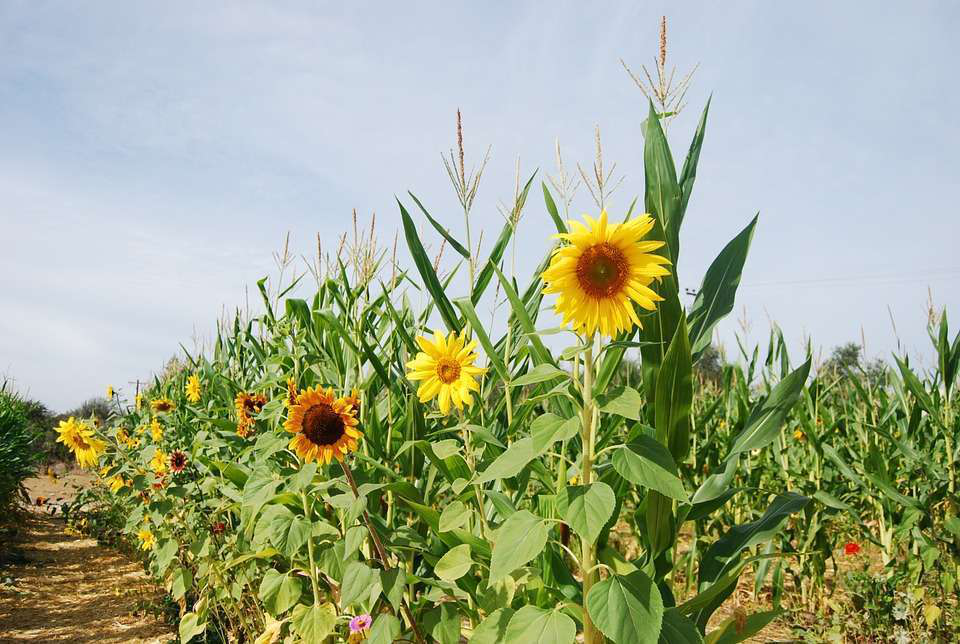
- Marigolds: Marigolds are another insect-attracting plant that can be beneficial for corn. They also help to repel nematodes, which are microscopic worms that can damage corn roots.
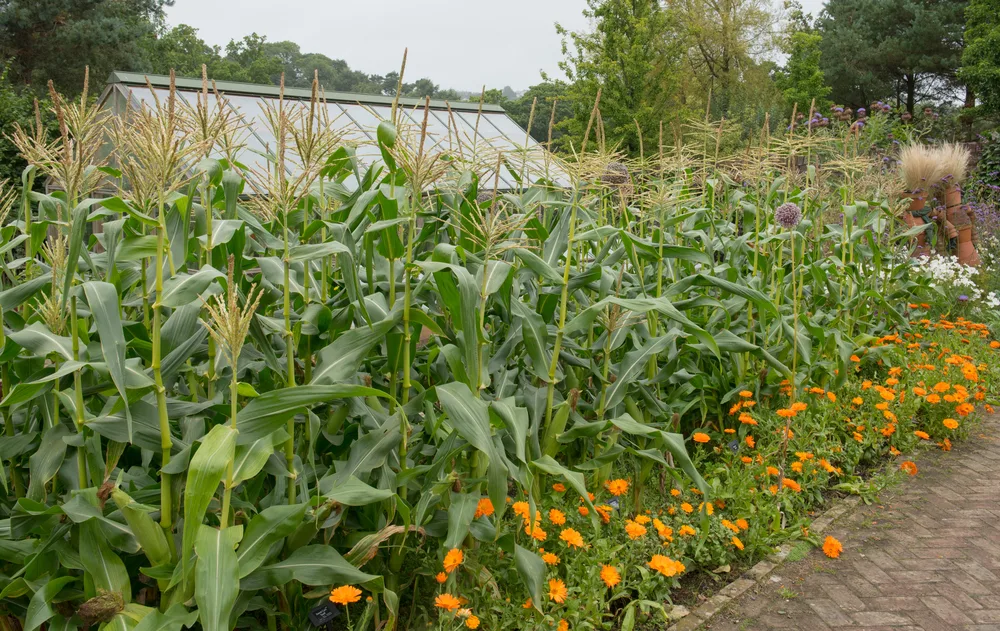
- Nasturtiums: Nasturtiums are a fast-growing plant that can help to suppress weeds. They also attract beneficial insects, such as hoverflies and ladybugs, which can help to control pests that attack corn.
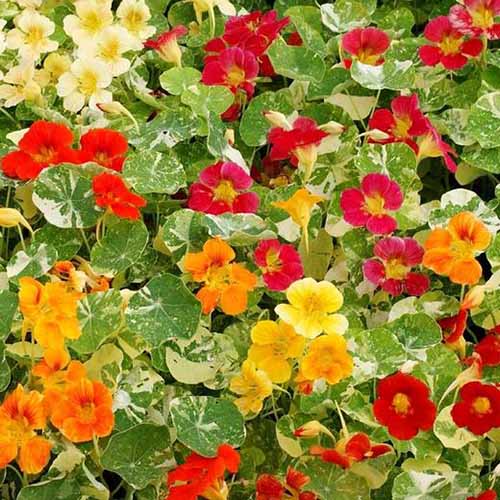
- Dill: Dill attracts beneficial insects, such as honeybees and butterflies, which can help to pollinate corn plants. It also helps to repel aphids and other pests.
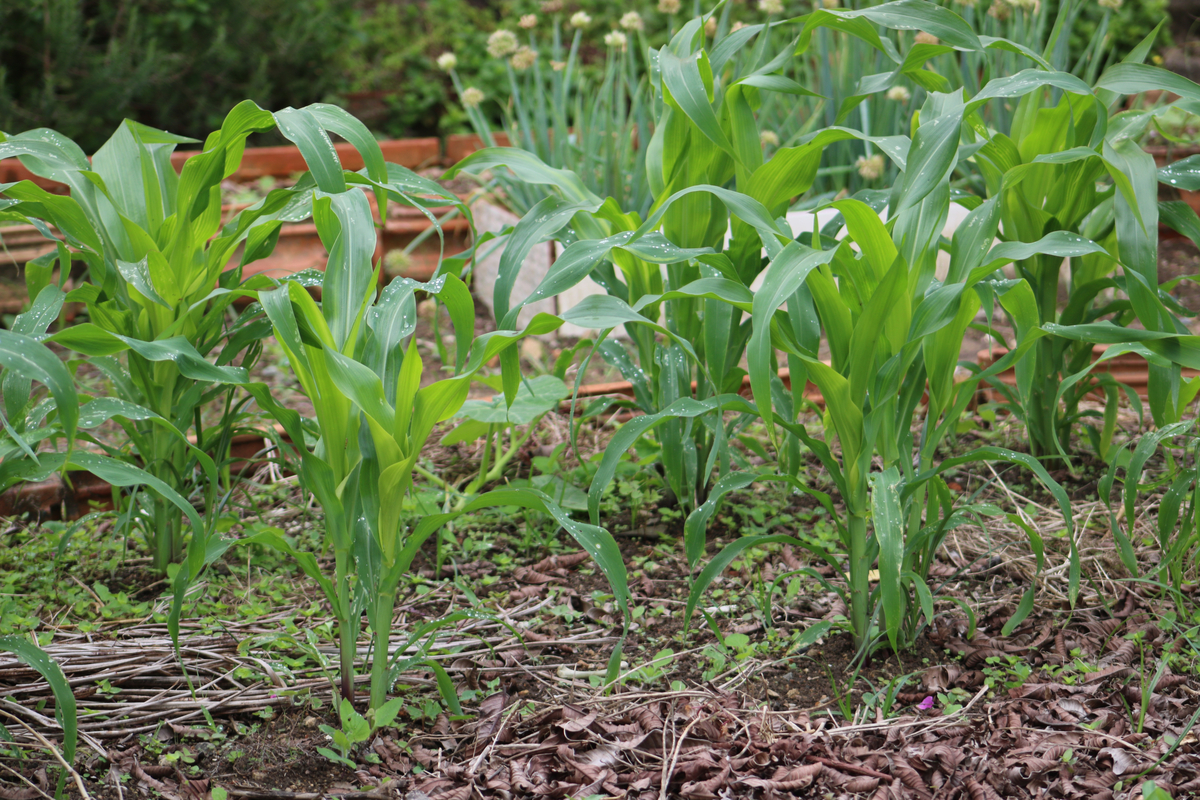
- Borage: Borage attracts beneficial insects, such as hoverflies and ladybugs, which can help to control pests that attack corn. It also helps to improve soil drainage and suppress weeds.
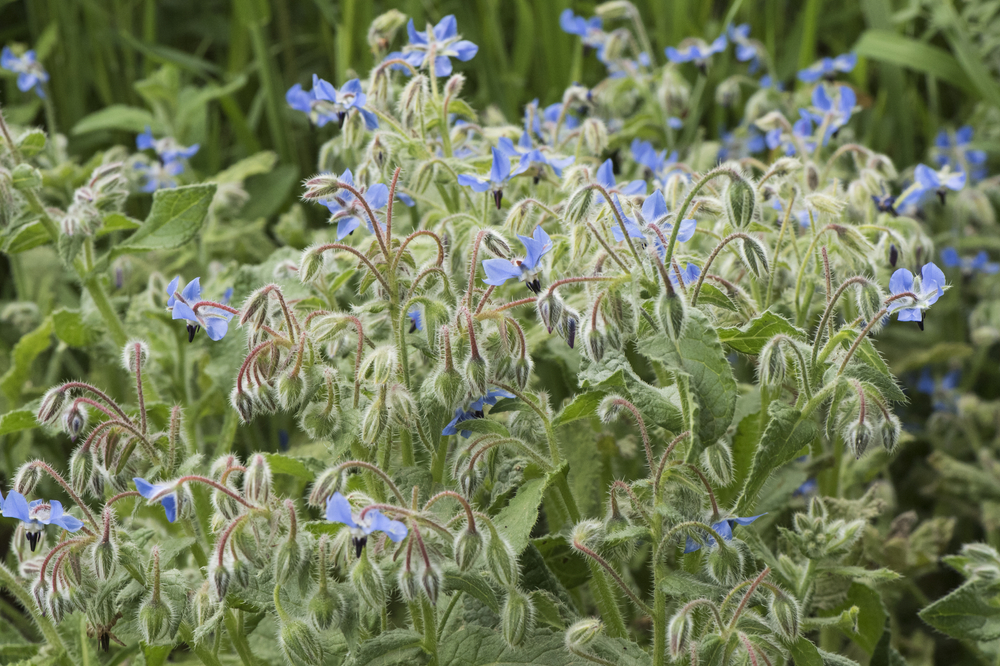
- Pumpkins: Pumpkins and other vining crops can help to shade the soil around corn plants, which can help to prevent weeds from growing. They also help to attract beneficial insects, such as parasitic wasps, which can help to control pests that attack corn.
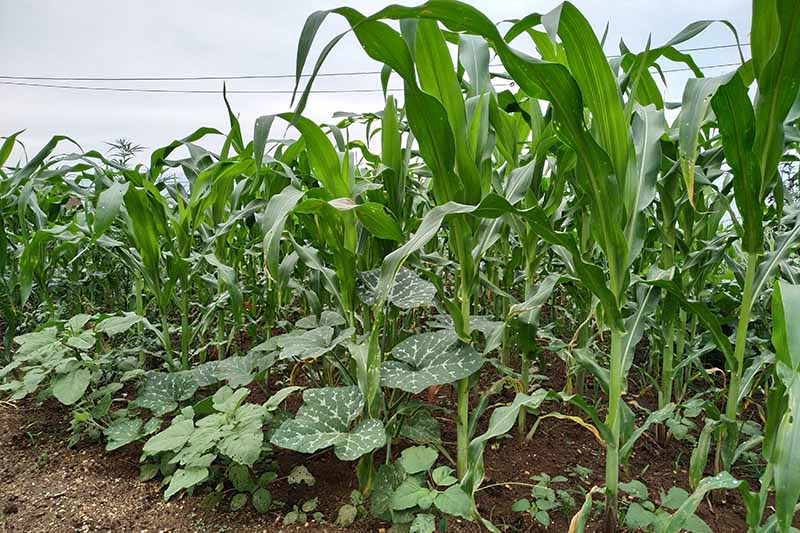
- Melons: Melons and other vining crops can help to shade the soil around corn plants, which can help to prevent weeds from growing. They also help to attract beneficial insects, such as parasitic wasps, which can help to control pests that attack corn.

When planting companion plants with corn, it is important to consider the size and growth habit of each plant. For example, you wouldn't want to plant a tall plant like sunflowers next to a short plant like dill, as the sunflowers would quickly shade out the dill. You also need to make sure that the companion plants have similar water and nutrient requirements.
If you are new to companion planting, it is a good idea to start with a few simple combinations. Once you have had some success, you can experiment with different combinations to see what works best in your garden.
Companion planting is a great way to improve your corn harvest and reduce the amount of time and effort you need to spend on pest control and watering. By planting the right companion plants with your corn, you can boost your yields and have a healthier, more productive garden.
Corn is a versatile and delicious vegetable that can be grown in many different climates. But did you know that there are certain plants that can help corn grow even better? These are called companion plants, and they can provide a variety of benefits to corn, such as:
- Attracting beneficial insects: Some companion plants, such as marigolds and nasturtiums, attract beneficial insects that help to control pests that can damage corn.
- Providing shade and support: Other companion plants, such as pole beans and winter squash, can provide shade and support for corn plants, which can help to prevent them from getting too tall and falling over.
- Improving soil quality: Some companion plants, such as peas and clover, can help to improve soil quality by adding nitrogen and other nutrients.
If you're interested in learning more about the best companion plants for corn, I recommend visiting Garden Wiki. This website has a comprehensive list of companion plants, as well as information on the benefits of each plant. You can also find tips on how to plant and care for companion plants, so that you can create a thriving garden.
FAQ of best companion plants for corn
- What are the best companion plants for corn?
Some of the best companion plants for corn include:
- Winter squash: Winter squash, such as butternut squash and pumpkins, can help to suppress weeds and improve soil quality. They can also provide shade for corn plants, which can help to protect them from pests and diseases.
- Pole beans: Pole beans can climb up corn stalks, which can help to save space in the garden. They can also fix nitrogen in the soil, which can benefit corn plants.
- Peas: Peas can also fix nitrogen in the soil, and they can help to suppress weeds. They can also be planted early in the season, which can help to improve the soil quality for corn plants.
- Marigolds: Marigolds can help to repel pests such as aphids and corn earworms. They can also attract beneficial insects, such as ladybugs and parasitic wasps, which can help to control pests.
- Nasturtiums: Nasturtiums can also help to repel pests, and they can also attract beneficial insects. They can also be used as a living mulch, which can help to suppress weeds and improve soil quality.
- What are the benefits of companion planting with corn?
There are many benefits to companion planting with corn, including:
- Disease and pest control: Companion plants can help to repel pests and diseases, which can reduce the need for pesticides.
- Improved soil quality: Companion plants can help to improve soil quality by adding nutrients, suppressing weeds, and improving drainage.
- Increased yields: Companion planting can help to increase corn yields by providing support, shade, and nutrients.
- Attracting beneficial insects: Companion plants can attract beneficial insects, such as ladybugs and parasitic wasps, which can help to control pests.
- Saving space: Some companion plants, such as pole beans and peas, can climb up corn stalks, which can help to save space in the garden.
- What are some plants that should not be planted near corn?
Some plants that should not be planted near corn include:
- Tomatoes: Tomatoes and corn are both susceptible to the same pests and diseases, so planting them near each other can increase the risk of infection.
- Potatoes: Potatoes and corn compete for the same nutrients, so planting them near each other can lead to nutrient deficiencies in both plants.
- Cucumbers: Cucumbers and corn can attract the same pests, such as cucumber beetles, so planting them near each other can increase the risk of infestation.
- Carrots: Carrots and corn have different rooting depths, so planting them near each other can lead to root damage.
- Onions: Onions and corn can repel each other, so planting them near each other can reduce the growth of both plants.
- How far apart should corn plants be planted?
Corn plants should be planted 18-36 inches apart. This will give them enough space to grow and mature properly.
- When should corn plants be planted?
Corn plants should be planted when the soil temperature is at least 60 degrees Fahrenheit. This is usually in the spring, after the last frost.
Image of best companion plants for corn
Here are 5 different images of best companion plants for corn from Pinterest:
- Beans: Beans fix nitrogen in the soil, which corn can benefit from. They also help to suppress weeds.
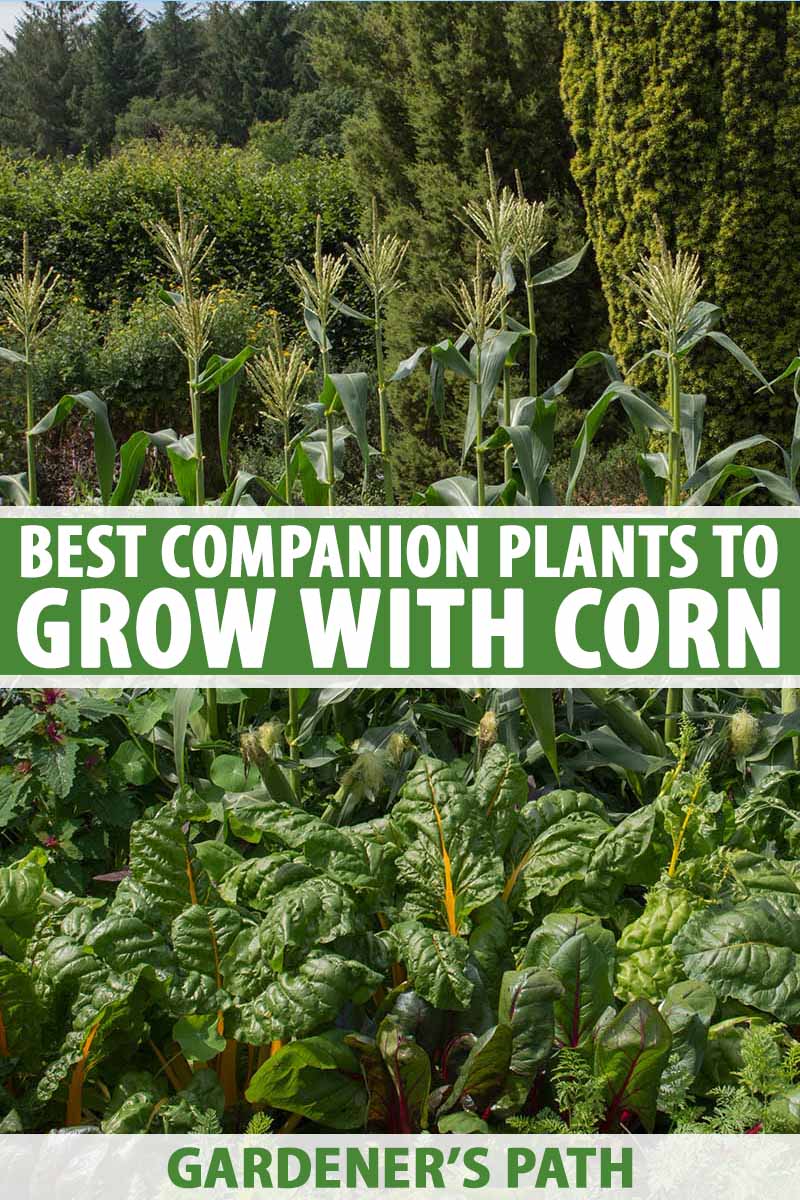
- Cucumbers: Cucumbers attract pollinators, which are important for corn pollination. They also help to shade the soil, which can help to keep it moist.

- Marigolds: Marigolds repel pests such as corn earworms and rootworms. They also help to attract beneficial insects such as ladybugs and lacewings.
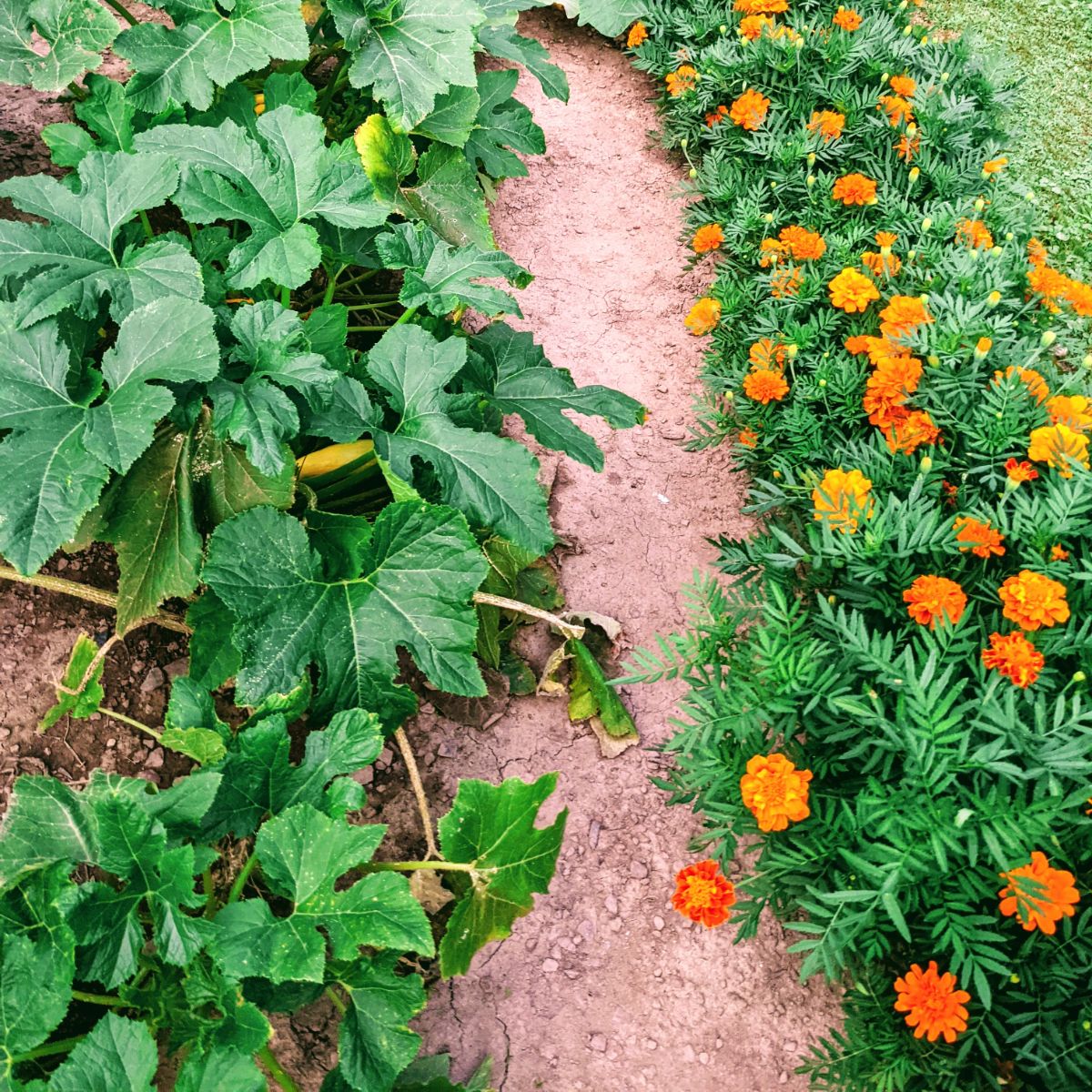
- Peas: Peas fix nitrogen in the soil, which corn can benefit from. They also help to suppress weeds.

- Spinach: Spinach helps to suppress weeds and attracts pollinators. It also helps to improve the soil structure, which can benefit corn.
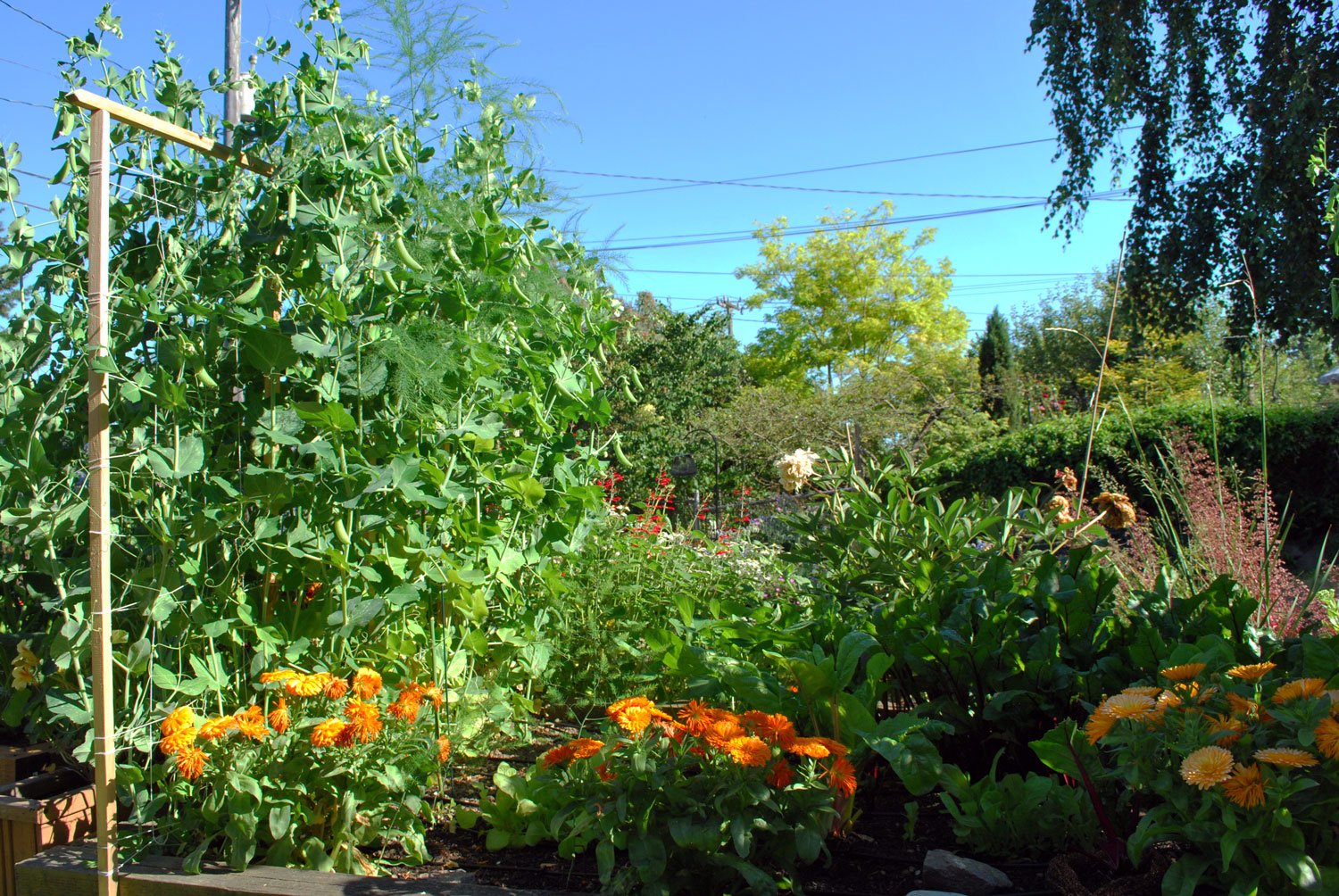
Post a Comment for "The Best Companion Plants For Corn"